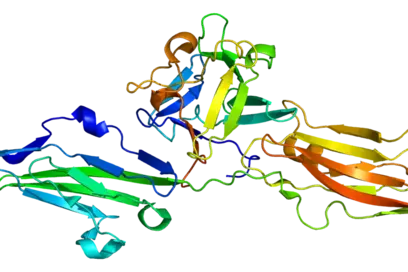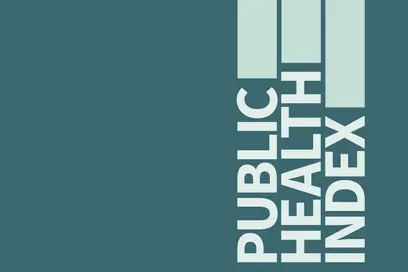Der Krebsinformationsdienst (KID) des Deutschen Krebsforschungszentrums beantwortet Fragen von Patienten, Angehörigen und der interessierten Öffentlichkeit zum Thema Krebs. Interessierte können täglich von 8.00-20.00 Uhr unter der kostenfreien Nummer 0800-420 30 40 anrufen oder sich per E-Mail an krebsinformationsdienst@dkfz.de wenden. Auf der Internetseite www.krebsinformationsdienst.de stellt der Dienst außerdem zahlreiche Informationen zum Thema Krebs bereit. Die zusätzliche Leitung zum Thema Darmkrebsfrüherkennung unter der gleichen kostenfreien Nummer schaltet der KID im Darmkrebsmonat März werktags von 9.00-19.00 Uhr frei. Hier informieren die Mitarbeiterinnen und Mitarbeiter des KID über die verschiedenen Möglichkeiten der Vorbeugung und Früherkennung von Darmkrebs.
Erst kürzlich hat eine Studie am DKFZ gezeigt, wie wirksam die Darmkrebsvorsorge mithilfe der Darmspiegelung ist. Professor Hermann Brenner und seine Mitarbeiter haben das Vorkommen von Darmkrebsvorstufen bei rund 3300 Saarländern untersucht. Bei denen, die innerhalb der letzten zehn Jahre an einer Darmspiegelung teilgenommen hatten, traten 48 % weniger fortgeschrittene Darmkrebsvorstufen auf, als bei denen, die zum ersten Mal zu einer Darmspiegelung gingen. „Mit der präventiven Darmspiegelung, die seit dem Jahr 2002 Teil des gesetzlichen Früherkennungsprogramms ist, verhindert man jedes Jahr Tausende Darmkrebsfälle“, sagt Brenner, „und es könnten noch wesentlich mehr sein, wenn mehr Menschen daran teilnehmen würden.“
Um die Teilnahme an der Darmkrebsvorsorge zu verbessern, arbeitet das DKFZ mit der regionalen Gemeinschaftsaktion „1000 Leben retten“ zusammen. An dieser Aktion beteiligen sich Betriebe aus der Rhein-Neckar-Region. Anhand eines Fragebogens wird das Darmkrebsrisiko der Mitarbeiter ermittelt und bei einem erhöhten Risiko die Durchführung eines moderner Stuhlbluttests angeboten. Die Initiative läuft über drei Jahre. Die wissenschaftliche Auswertung übernehmen das DKFZ durch Professor Hermann Brenner sowie die Sektion Psychoonkologie der Universität Heidelberg. Brenner geht davon aus, dass durch die erhöhte Teilnahme an der Früherkennung die Zahl der Darmkrebstodesfälle in der Region deutlich gesenkt werden kann.
Welche Faktoren den Krankheitsverlauf bei Darmkrebs beeinflussen, untersucht Professor Cornelia Ulrich vom Nationalen Centrum für Tumorerkrankungen (NCT) in der ColoCare-Studie. So spielen sowohl genetische Merkmale der Patienten, individuelle Tumoreigenschaften als auch der Lebensstil eine entscheidende Rolle dabei, wie die Krankheit voranschreitet. Das Ziel der Studie ist es herauszufinden, welche Therapie bei welchem Patienten den größten Erfolg verspricht und gleichzeitig den Patienten Wege aufzuzeigen, wie sie selbst ihre Prognose verbessern können. So weisen erste Ergebnisse bereits darauf hin, dass ein angemessenes Sportprogramm nicht nur die Lebensqualität von Krebspatienten steigert, sondern möglicherweise sogar das Wiederauftreten von Krebs nach der Behandlung hinauszögern kann.
Ein Bild zur Pressemitteilung steht im Internet zur Verfügung unter:
www.dkfz.de/de/presse/pressemitteilungen/2010/images/Darmkrebs.jpg
Bildunterschrift: Fluoreszenzfärbung eines Darmkrebs-Gewebeschnittes
Fotograf: Dr. Lutz Langbein, Deutsches Krebsforschungszentrum
Seit 2002 organisiert die Felix-Burda-Stiftung jährlich den Darmkrebsmonat März. In diesem Monat informieren zahlreiche Aktionen bundesweit zum Thema Darmkrebs und motivieren zur Teilnahme an der Darmkrebsfrüherkennung. Die Kampagne wird von vielen Organisationen, Politikern, Prominenten und Wissenschaftlern unterstützt.
Über das DKFZ
Das Deutsche Krebsforschungszentrum (DKFZ) ist mit mehr als 3.000 Mitarbeiterinnen und Mitarbeitern die größte biomedizinische Forschungseinrichtung in Deutschland. Wissenschaftlerinnen und Wissenschaftler erforschen im DKFZ, wie Krebs entsteht, erfassen Krebsrisikofaktoren und suchen nach neuen Strategien, die verhindern, dass Menschen an Krebs erkranken. Sie entwickeln neue Methoden, mit denen Tumoren präziser diagnostiziert und Krebspatienten erfolgreicher behandelt werden können. Beim Krebsinformationsdienst (KID) des DKFZ erhalten Betroffene, Interessierte und Fachkreise individuelle Antworten auf alle Fragen zum Thema Krebs.
Um vielversprechende Ansätze aus der Krebsforschung in die Klinik zu übertragen und so die Chancen von Patientinnen und Patienten zu verbessern, betreibt das DKFZ gemeinsam mit exzellenten Universitätskliniken und Forschungseinrichtungen in ganz Deutschland Translationszentren:
- Nationales Centrum für Tumorerkrankungen (NCT, 6 Standorte)
- Deutsches Konsortium für Translationale Krebsforschung (DKTK, 8 Standorte)
- Hopp-Kindertumorzentrum (KiTZ) Heidelberg
- Helmholtz-Institut für translationale Onkologie (HI-TRON) Mainz – ein Helmholtz-Institut des DKFZ
- DKFZ-Hector Krebsinstitut an der Universitätsmedizin Mannheim
- Nationales Krebspräventionszentrum (gemeinsam mit der Deutschen Krebshilfe)
Das DKFZ wird zu 90 Prozent vom Bundesministerium für Forschung, Technologie und Raumfahrt und zu 10 Prozent vom Land Baden-Württemberg finanziert und ist Mitglied in der Helmholtz-Gemeinschaft Deutscher Forschungszentren.



